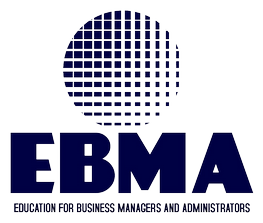Overview
The Level 3 Diploma in Business Innovation and Entrepreneurship equips learners with the knowledge and skills to develop new businesses and manage the internal and external business environment, information systems, people, and resources within an organisation.
Throughout this qualification, the learners will be able to:
- Understand innovation management for business development and self-analysis in the context of an entrepreneurial career;
- Understand the concept of entrepreneurship and its relation to small businesses;
- understand innovation management for business development and self-analysis in the context of an entrepreneurial career;
- Understand the concept of entrepreneurship and its relation to small businesses;
- Identify various theories of entrepreneurship, the value of innovation for business, ethical considerations and issues for communication in the organisation;
- Gain skills and knowledge required for effective communications in the organisation;
- Develop critical thinking skills for innovative business ideas and evaluate an entrepreneurial business idea.
- Identify, analyse the role, nature and characteristics of the entrepreneur in the economy;
- Understand the entrepreneurial steps to business planning.
- Understand the nature of small and medium enterprises (SME) and their marketing practice;
- Develop a marketing strategy for a new business;
- Identify an entrepreneurial role in the brand development and market positioning, and analyse key issues and challenges faced by an entrepreneur to target a market;
- Understand the nature of entrepreneurial finance and basic accounting principles;
- Identify the nature, purpose and characteristics of financial statements and entrepreneurial finance in decision-making.
Structure

Mandatory Units – 30 credits
- Innovation for Business
- English for Business Communication
- Thinking Entrepreneurially
Optional Units – 30 credits
You are required to complete only two units
- Entrepreneurship and Entrepreneurial Business Planning
- Entrepreneurial Marketing
- Entrepreneurial Finance and Accounting
Entry Requirements
- Level 2 in Business or equivalent qualification or relevant substantial work experience; and
- This qualification is appropriate for learners that
Assessment
The methods for assessing student performance can be broadly summarised under coursework by following instructions for coursework.
Learners are required to develop an assignment of each unit minimum 1850 words in length. Assignments are important part of learners’ work at the Centre. There are strict rules about:-
- Plagiarism – using another person’s words out of a book/ journal article/ conversation/ lecture without formally acknowledging it,
- Referencing – how to reference and refer to another person’s work in your written work so you avoid plagiarism,
- Word length of essays and reports,
- Presentation and style of a report, including the style of language used, and
- Learners are required to sign a declaration of authentication to confirm that the work is their own and that any assistance given and/or sources used have been acknowledged.
All learning outcomes must be assessed using assignment appropriate to the assessment of knowledge, understanding and skills. The Qualifications within this suite are vocational because they support a Learner’s career progression. Assessments will contain a question strand for each of the given unit’s Learning Outcomes. The assignment tasks will address the LO (Learning Outcome) and AC (Assessment Criteria) requirements. Within assignments there will always be requirements for Learner’s to engage with important and relevant theory that underpins the subject area
There must be valid, sufficient, and authentic evidence of all the assessment criteria.
Submitted assignments should be marked by an assessor. In order to pass a unit, a learner must achieve 40% marks in each assignment.
Assessors must plan, gather and then assess learner’s evidence according to level descriptors’ requirements and on the basis of Pass/Fail criteria. These should be made available for internal verification to the centre Internal Quality Assurer (IQA).
EBMA External Quality Assurer (EQA) undertakes external moderation to monitor the assessment, internal moderation processes within the centre to make sure the assessment remains fit for purpose, and that the assessment process and practices by the centre continue to meet assessment standards requirements.
Fees Info
Please consult with the centre or our fee information for more information.
- Level 3 Certificate in Assessing Vocational Achievement
- Level 4 Award in Internal Quality Assurance of Assessment Processes and Practice
Career Prospects
Level 3 Diploma in Business Innovation and Entrepreneurship offers career progression and excellent levels of support for learners that include:
- Positive, constructive and helpful advice;
- Practicality;
- Realistic aims and outcomes;
- Impartial and Client Centred;
- The progression to the University
- Senior Manager
- Office Manager or Supervisor
- Team Manager or Supervisor
- Administration Officer/Administrator
- Senior Administration Officer
- Customer Service Officer
- Customer Service Manager






